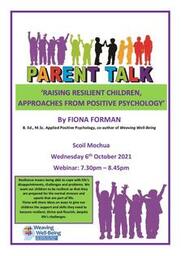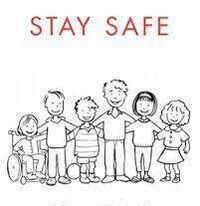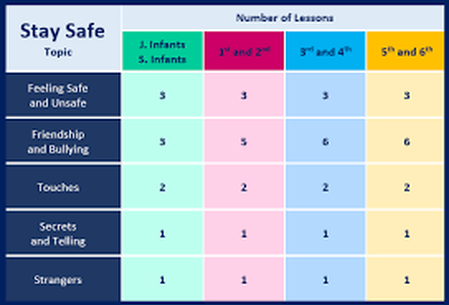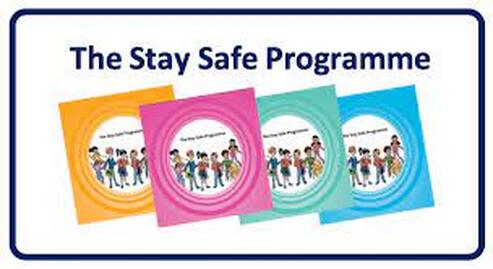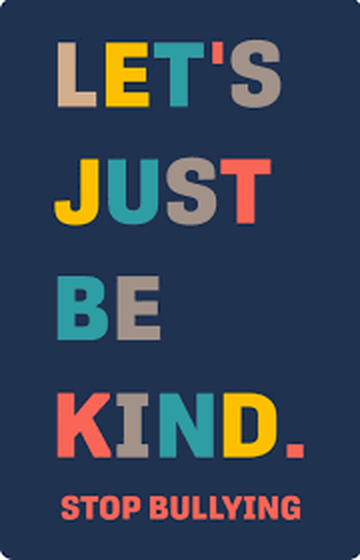Welcome to Scoil Mochua's parent well-being page. This is a space for parents to find out more about how we promote and teach children about well-being in our school. We also endeavour to provide parents with up to date and relevant information to support their own well-being and that of their families.
Read all about Wellbeing Week 2024 here!
Read all about Wellbeing Week 2024 here!
supporting an anxious child webinar
mental health webinar for parents
In July of last year, Walk in My Shoes, a mental health awareness and education organisation, hosted a webinar for parents.
Chief Executive Officer (CEO) of St Patrick's Mental Health Services, Paul Gilligan opens the webinar by speaking about building psychological resilience in children. Áine Lynch, CEO of the NPC, gives a presentation on listening and communication, while Cliodhna McDonnell, Founder of Doing the Best We Can, a peer support network for parents and guardians, talks about the service, its benefits, and who can access it.
Chief Executive Officer (CEO) of St Patrick's Mental Health Services, Paul Gilligan opens the webinar by speaking about building psychological resilience in children. Áine Lynch, CEO of the NPC, gives a presentation on listening and communication, while Cliodhna McDonnell, Founder of Doing the Best We Can, a peer support network for parents and guardians, talks about the service, its benefits, and who can access it.
weaving Well-being
presentation for parents
|
In 2021, we introduced a new well-being programme in all classes from Junior Infants to 6th. It is called Weaving Well-being. On the 6th of October 2021, Fiona Forman, co-author of Weaving Well-being, hosted a webinar for the parents of Scoil Mochua. In her presentation she discussed positive psychology, self-care and building resilience in children. Thank you Fiona for an engaging and informative talk. She has kindly shared her presentation slides which can be downloaded here.
|
‘I am not afraid of storms, for I am learning how to sail my ship.’ Louisa May Alcott
Parent Webinar: Raising Resilient Children : Approaches from Positive Psychology By Fiona Forman
Resilience is one of the greatest gifts we can give our children. Now, with the extra challenges they have faced due to Covid 19, we need to equip them with the skills they need to flourish and thrive, despite these many difficulties and obstacles.
The field of Positive Psychology, which is the science of well-being, can offer us many approaches and ideas for nurturing our children’s resilience, through a combination of support and skills.
In this talk, author and former teacher, Fiona Forman, (M. Sc. Applied Positive Psychology) will share insights and research on resilience, as well as practical resilience skills.
Fiona Forman - Bio
Fiona Forman is an author, speaker, facilitator and trainer in the area of well-being and Positive Psychology. Having spent many years as a primary school teacher, she is absolutely passionate about placing well-being at the heart of school life, and she has seen first-hand the great benefits of empowering children, teachers and parents to understand, value and enhance their own mental health. Fiona holds an M. Sc. in Applied Positive Psychology, the science of well-being, from the University of East London.
Fiona is the co-author of Weaving Well-Being, an SPHE programme which is now widely used in primary schools. She is also the author of Wired for Well-Being, a new well-being programme for Second Level schools and her junior programme, Welcome to Well-Being, has just been released. Fiona is also the mother of two young adults, which has deepened her awareness of the necessity to equip children with the support and skills that they need to develop resilience and to thrive and flourish in life.
Resilience is one of the greatest gifts we can give our children. Now, with the extra challenges they have faced due to Covid 19, we need to equip them with the skills they need to flourish and thrive, despite these many difficulties and obstacles.
The field of Positive Psychology, which is the science of well-being, can offer us many approaches and ideas for nurturing our children’s resilience, through a combination of support and skills.
In this talk, author and former teacher, Fiona Forman, (M. Sc. Applied Positive Psychology) will share insights and research on resilience, as well as practical resilience skills.
Fiona Forman - Bio
Fiona Forman is an author, speaker, facilitator and trainer in the area of well-being and Positive Psychology. Having spent many years as a primary school teacher, she is absolutely passionate about placing well-being at the heart of school life, and she has seen first-hand the great benefits of empowering children, teachers and parents to understand, value and enhance their own mental health. Fiona holds an M. Sc. in Applied Positive Psychology, the science of well-being, from the University of East London.
Fiona is the co-author of Weaving Well-Being, an SPHE programme which is now widely used in primary schools. She is also the author of Wired for Well-Being, a new well-being programme for Second Level schools and her junior programme, Welcome to Well-Being, has just been released. Fiona is also the mother of two young adults, which has deepened her awareness of the necessity to equip children with the support and skills that they need to develop resilience and to thrive and flourish in life.
Stay safe programme
|
The Stay Safe Programme is a mandatory personal safety skills programme for primary schools. Its overall objective is to prevent child abuse, bullying and other forms of victimisation. Personal safety skills are taught as part of the Social, Personal and Health Education (SPHE) curriculum of primary schools.
|
WHAT DOES THE PROGRAMME DO?
The programme develops children’s ability to recognise, resist and report risk situations or abusive encounters by teaching children:
The programme develops children’s ability to recognise, resist and report risk situations or abusive encounters by teaching children:
- To identify for themselves unsafe or upsetting situations
- Simple rules to help them avoid abuse
- To respect and value the rights of others
- The language and skills they require to seek help.
- The programme also informs parents/guardians and teachers about preventing bullying and child abuse, whilst seeking to create a greater public awareness about the problems children can and do experience.
HOW IS THE PROGRAMME TAUGHT?
Children are taught the content of the Stay Safe lessons in the classroom by their class teacher, and then discuss the lessons at home with their parents/guardians. Teachers and parents/guardians work together to ensure that children learn the skills they need to keep safe. The programme consists of lessons presented within five topics and are taught once in the two year SPHE cycle, as outlined in the table below.
Children are taught the content of the Stay Safe lessons in the classroom by their class teacher, and then discuss the lessons at home with their parents/guardians. Teachers and parents/guardians work together to ensure that children learn the skills they need to keep safe. The programme consists of lessons presented within five topics and are taught once in the two year SPHE cycle, as outlined in the table below.
WHAT WILL CHILDREN LEARN?
The lessons teach children about what to do if they’re frightened or upset. One of the central messages children learn is that if they ever have a problem, they should tell an adult they know and trust. As well as reducing children’s vulnerability to abuse, the Stay Safe programme aims to increase wellbeing and resilience by giving children knowledge, skills and strategies in an age-appropriate manner, using developmentally structured lessons and resources to empower them.
The lessons teach children about what to do if they’re frightened or upset. One of the central messages children learn is that if they ever have a problem, they should tell an adult they know and trust. As well as reducing children’s vulnerability to abuse, the Stay Safe programme aims to increase wellbeing and resilience by giving children knowledge, skills and strategies in an age-appropriate manner, using developmentally structured lessons and resources to empower them.
All Together Now
|
All Together Now is composed of four lessons based in the SPHE curriculum for 5th and 6th classes in primary schools. The lessons take an equality and human rights approach to respect, inclusion and homophobic and transphobic bullying.
The lesson plans for All Together Now include slides, scenarios, discussion questions and other tools for teaching pupils. Pupils are taught about types of identity-based bullying (based on the nine grounds of the Equality Acts and the DES Action Plan on Bullying.) They are also taught about bullying behaviours such as verbal, physical, cyber or social isolation. For more information on the programme, click here. The CPSMA (Catholic Primary Schools Management Association) has approved the use of this programme in Catholic primary schools. |
supporting your child when they are reluctant to attend school
|
School should be a happy, safe place for children, but it is not unusual for children to feel uneasy about going to school now and again. However, if your child begins to regularly experience strong feelings such as reluctance about going to school or have difficulty staying in school, it is important to notice this and respond quickly.
Working with your child's class teacher from the beginning, is essential in supporting them while they feel like this. |
It is important to give a strong message to your child that even though they are experiencing strong feelings about school attendance they need to go to school.
By reading this document published by the Department of Education you will find information on:
By reading this document published by the Department of Education you will find information on:
- Why your child may feel reluctant about going to school.
- Managing your own thoughts and feelings.
- What you can do to support your child in going to school when they are reluctant.
- What you as a parent can expect your child’s school to do to support your child at this time.

